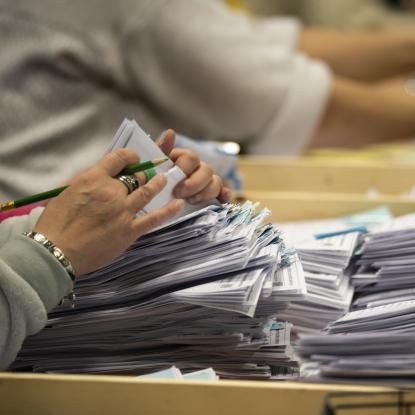Overview of Certification
State Certification Guidelines
Since 2020, Campaign Legal Center has worked continuously with state and federal lawmakers to ensure all votes are counted and election results are honored.

Campaign Legal Center, All Voting is Local, the Brennan Center for Justice at NYU Law and Protect Democracy coauthored guides to election certification and the state laws protecting the certification process in seven battleground states. The guides explain how state laws can protect against threats or delays to election certification and emphasize that refusal to certify is illegal in each state.
The bottom line across all states is that:
Additional state-by-state guides can be found below. Each state’s guide provides the legal mechanisms that state and local officials can deploy in response to refusals to certify elections.
Overview of Certification
State Certification Guidelines
Since 2020, Campaign Legal Center has worked continuously with state and federal lawmakers to ensure all votes are counted and election results are honored.